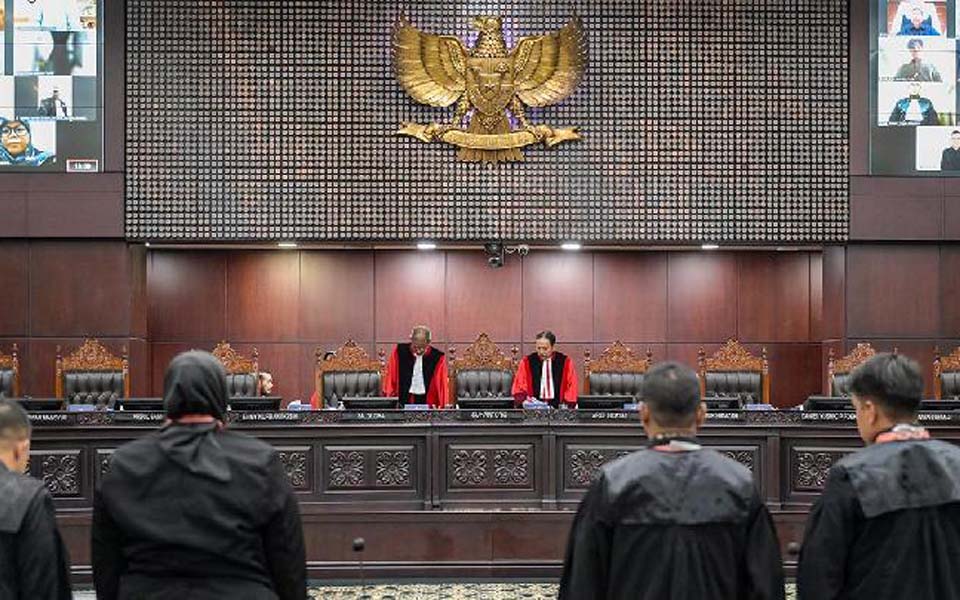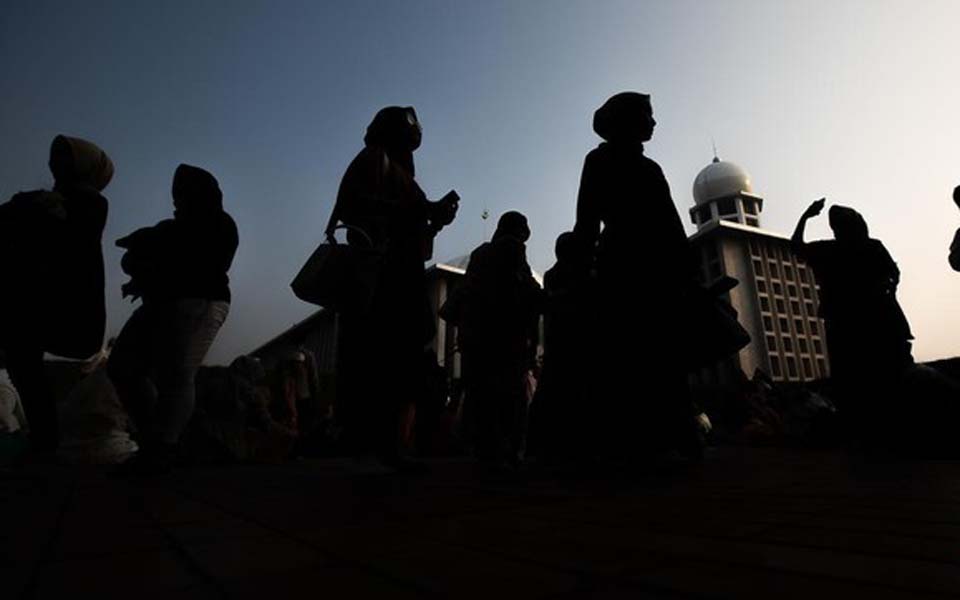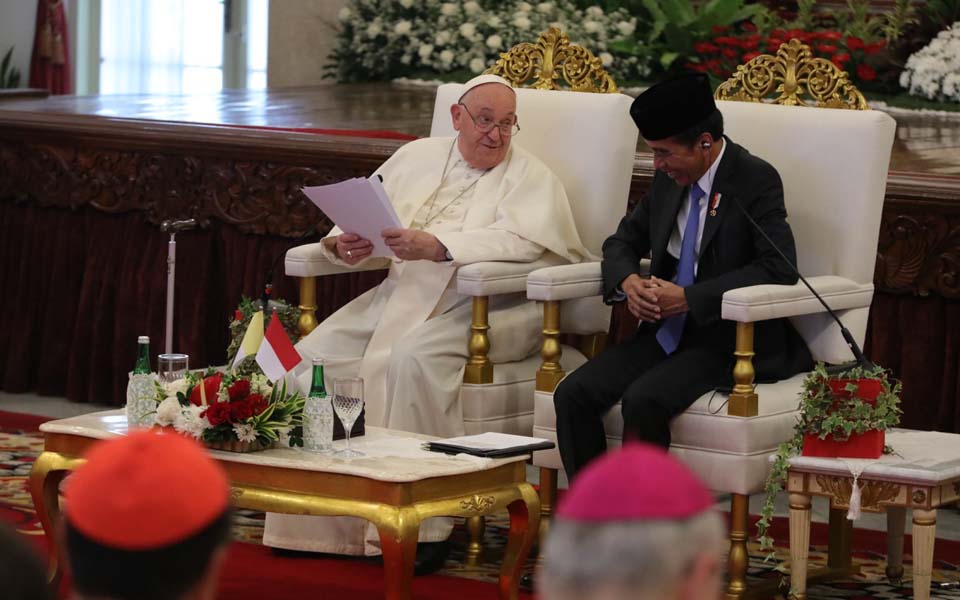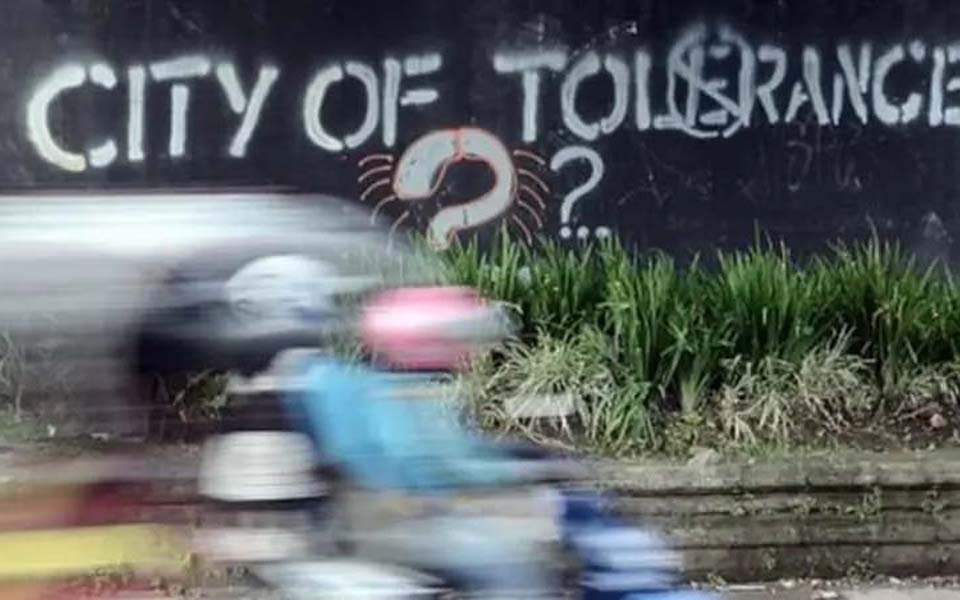Jakarta – President Joko “Jokowi” Widodo plans to build an underground tunnel connecting the Istiqlal Mosque and the Cathedral Church in Central Jakarta which are located adjacent to each other. The proposed construction will be carried out during renovations to the Istiqlal Mosque which were reviewed by Widodo on Friday February 7.
The construction of the tunnel itself was not included in the initial plan to renovate the mosque which is claimed to be the biggest in South-East Asia. The renovations only covered the interior section and several parts of the mosque’s exterior such as the river, garden and parking area.
But the proposed tunnel construction surfaced in the middle of the project which is targeted to be finished next April.
Widodo says that the tunnel will be a symbol of friendship between the two houses of worship using the term “friendship tunnel” for the planned construction.
The plan however has attracted criticism from a number of parties. Indonesia’s second largest Islamic mass organisation Muhammadiyah even referred to the tunnel as just a courtesy symbol of tolerance which Widodo wants to show off.
A similar criticism was conveyed by the country’s largest Islamic mass organisation Nahdlatul Ulama with central leadership board chairperson Said Aqil Siroj saying that friendship doesn’t need to be symbolised by the construction of infrastructure.
Indonesian Institute of Science (LIPI) political observer Wasisto Raharjo Jati meanwhile rejected the friendship tunnel as being little more than a symbol without substance. The planned construction, according to Jati, will only serve to facilitate access for people wishing to go back and forth between the mosque and the cathedral.
The meaning of friendship between religious communities which this intends to convey will not necessarily burst out in the minds of the public. They will only see the tunnel as a new facility.
“If it’s used to cross between the two religious congregations then yes absolutely but it’s [still] just a symbol, there isn’t any substance”, said Jati when contacted by CNN Indonesia on Tuesday February 11.
Jati believes that the plan is an effort to hush up the issue of conservatism at the grass roots. There have been a number of problems between religious congregations which remain homework for the number one person in Indonesia.
This ranges from problems surrounding permits for the construction of houses of worship [churches – JB], persecution against minority religious groups to restrictions on expression by religious communities.
According to Jati, these problems cannot be resolved by building symbols in the form of tunnels. There must be concrete steps so that religious communities no longer have problems worshiping freely.
Moreover, under the 1945 Constitution it states that everyone has the right to follow a religion and worship accordingly. The state must guarantee that communities can worship without restrictions.
“This is more urgent than building an underground tunnel. The state must be genuinely present in building peace and harmony between religious communities”, he said.
Widodo’s plan to build the tunnel is also not proportional if the aim is just to compete with Jakarta Governor Anies Baswedan. Of late, Baswedan has been quite enthusiastic about building pedestrian overpasses (JPO) in the capital.
According to Jati however, the bridges being built by Baswedan do indeed have concrete uses for many people.
“If Pak [Mr] Jokowi wants to compete with the governor it doesn’t feel very elegant. Moreover Pak Anies’ JPOs are a utility which is urgent because Jakarta’s congested, there are many vehicles, so it’s hard for people to cross [the road]”, he said.
Jati understands Widodo’s good intentions in building the tunnel but he thinks that the construction needs to be reviewed because the problem of friendship and tolerance cannot be measured just by a tunnel.
“What becomes a problem is whether the narrative on harmony between religious congregations is only being built by constructing a tunnel? This is still of minimal substance”, he said.
Speaking in the same vein, city administration observer Yayat Supriatna says that the construction of the tunnel is nothing more than a symbol. In terms of functionality, Supriatna believes that the tunnel will not have much impact on people’s access between the Istiqlal Mosque and the Cathedral.
Even if the tunnel is replaced by a JPO or pedestrian crossing, Supriatna is convinced that it will not be very functional.
“It’s just symbolic. Perhaps for certain activities (important days) it will be useful, but a tunnel doesn’t need to be forced on them”, he said.
In addition to this there are many issues which must be considered before building a tunnel. One of which is related to management. Because both the Istiqlal Mosque and the Cathedral both have their own respective management authorities.
“At the church there are authorities, the mosque also has them. Will the tunnel be open 24 hours a day? This must be considered”, he said.
Another consideration which is no less importance, continued Supriatna, is security in the tunnel. If it is not maintained properly, the tunnel could be misused by irresponsible parties.
“Let there be parties which don’t have an interest doing things that aren’t right. This is an important note”, he said. (psp/bmw)
[Translated by James Balowski. The original title of the article was “Terowongan Istiqlal-Katedral Jokowi, Simbol Nirsubstansi”.]















